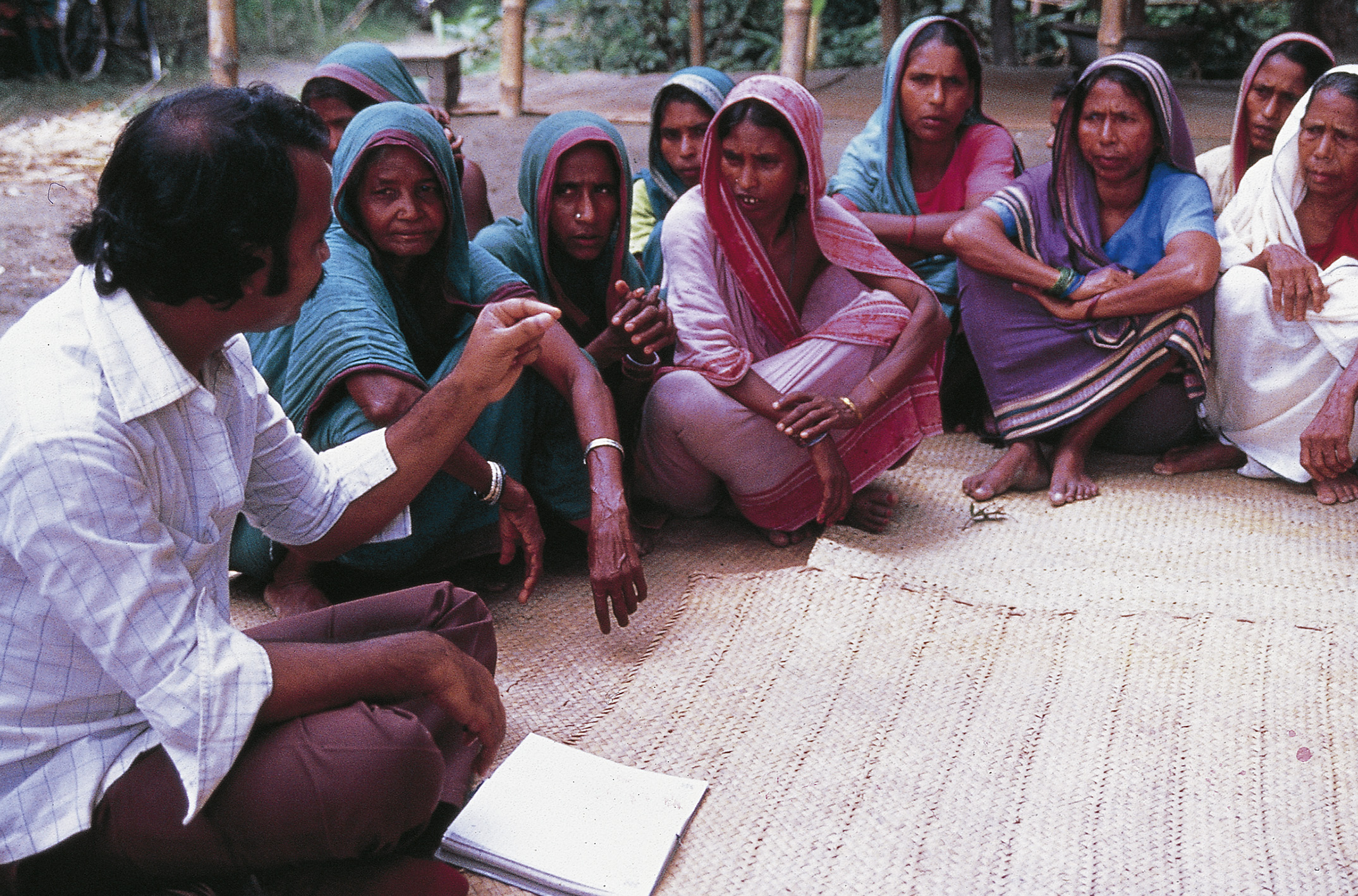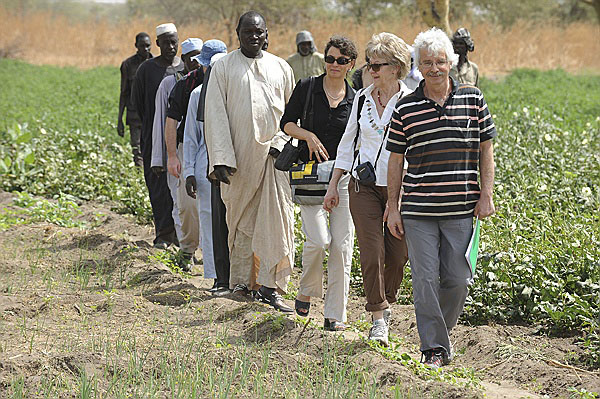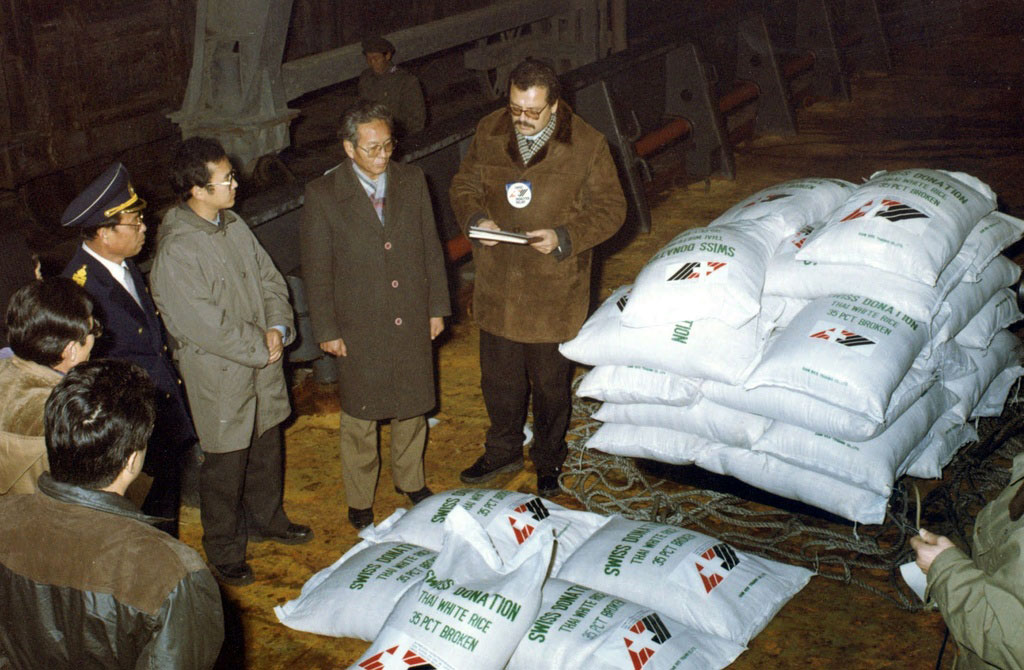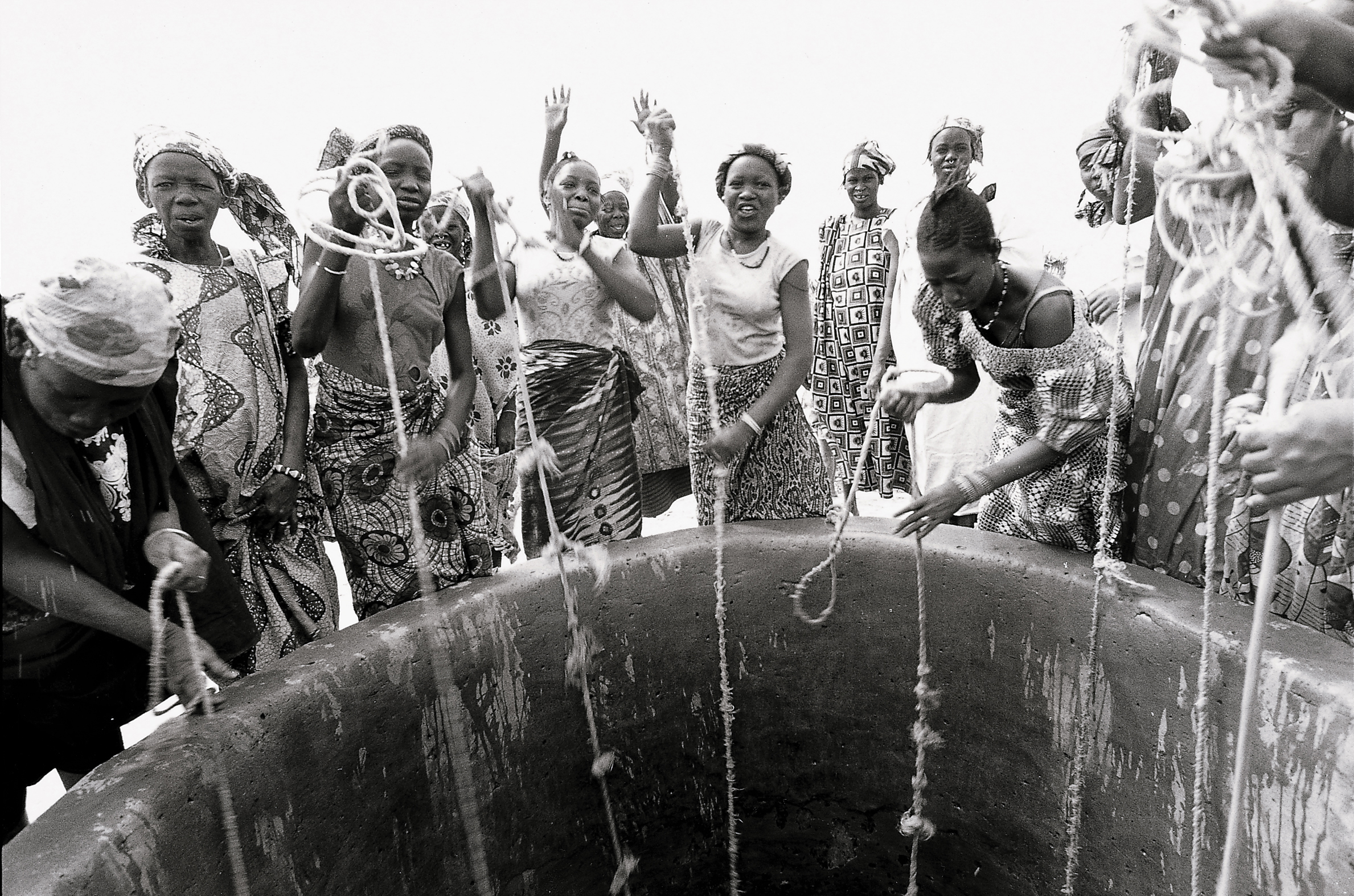How idealism drove Swiss development aid

Supporting refugees fleeing unrest in Libya, or helping Japan after its devastating earthquake and tsunami – Swiss humanitarian aid has been in the news recently.
It’s news, but not new. The Swiss Agency for Development and Cooperation (SDC) has been providing aid for exactly 50 years, both in spectacular disaster situations, and over the long haul with projects targeting issues ranging from poverty reduction to conflict prevention and good governance.
But without the commitment of private organisations and grass-roots idealists it might never have come into existence.
One such activist was Martin Menzi, born in 1929, who explained his motivation to swissinfo.ch as the idealism of the post-war years, the determination that there should be “no more war”, and the realisation that economic inequalities could in the long term be a threat to peace.
“There were what you might call ‘progressive’ groups who looked beyond the Swiss borders and approached the authorities, saying Switzerland should get involved,” he said.
“And they were told: it’s up to you to motivate civil society, and lay the ground so the political authorities can follow.” So that’s what they did.
Naïve idealists
Theo von Fellenberg, born in 1935, was another young idealist.
“I was aware of my privileged situation, growing up in a comfortable home,” he explained to swissinfo.ch.
He went off to India at the age of 25, as a volunteer with Service Civil International, a Swiss-founded voluntary organisation, whose aim was to promote understanding between people.
“We were full of idealism, and quite naïve. We had no preparation. I simply went without having any idea what India was all about,” he admitted.
He found himself questioning the purpose of what he was doing when, having slaved away helping to make bricks for slum dwellers to build better homes, on his return six months later he found the bricks untouched. The locals told him they were quite happy with the homes they had – but that that they were delighted he had been there.
“The fact that we had lived with them was ten times more important than building them nice houses,” he reflected.
Learning from mistakes
Menzi’s case was different: the SDC sent him to India in 1968, by which time he was a trained agronomist. He spent ten years working to improve milk yields in the southern state of Kerala, crossing Swiss dairy animals with disease-resistant local breeds.
Today milk is still an important source of income to local small farmers, and milk consumption in Kerala is eight times more than it was in the 1960s.
Even so, Menzi admits that experts, too, made mistakes.
“The technical approaches we chose were often too simple. We were insufficiently aware of the complexities: the fact that food supply, for example, is not simply a technical matter, but depends on the political and social structures, and that’s often where you have to begin if you want to have a sustainable impact.”
Over the years attitudes have changed. Development workers have learned to look at the overall picture, he believes, and have realised that they cannot simply pass on European practice, but must cooperate with partners on the ground and learn from them.
The SDC’s website stresses the importance of systematic and critical assessment of its work. “Evaluations promote institutional learning,” it points out.
Accountability
Evaluation is also “a means of accounting to politicians and the general public for any actions taken“, it says.
And all development organisations need the support of the people who pay for them.
Research published earlier this month showed that two-thirds of Swiss households gave money to charity in 2010, and parliament has just voted to increase Swiss development aid.
Nevertheless it is an “ongoing task” to convince the Swiss people that this aid is important, says Rene Holenstein, a historian who works with the SDC and who has just written a book about the organisation.
“Historically, we have always seen waves, where sometimes selfish interests come to the fore, and sometimes solidarity,” he told swissinfo.ch.
While some aid produces results that remain for all to see – like Menzi’s cattle – sometimes the exact contribution can be hard to quantify. But Holenstein is convinced that receiving countries have truly benefited.
“People often overestimate what aid can achieve. But it often acts as a catalyst: it is the trigger for processes that the countries, or the people themselves, continue with.”
Von Fellenberg, who spent six years at a desk job with the SDC, accepts that development spending has to be justified to the Swiss taxpayer. But it was tough for an idealist like him.
“I felt more and more unhappy about all the political considerations, why we as a state give development aid. The main theme was that it must be right for Switzerland, economic interests must be taken into account,” he said, explaining why he left in 1970.
Archive of memories
Film maker Frédéric Gonseth, whose Humem team (see fact box) has interviewed about 80 former aid and humanitarian workers – including Menzi and von Fellenberg – told swissinfo.ch that the Swiss public is not really aware of the work they did.
His interviewees include not only technical experts, but also people who worked for organisations like the Red Cross. Many have moving tales to tell, some are harrowing.
While a lot of their work has to be confidential at the time, they are not forced to observe a lifetime of silence. But by the time they may speak, often no one asks them. Many were astonished to be asked to contribute to the archive, Gonseth said.
“They are people who have experienced extraordinary things, who were witnesses of important events in the history of mankind.”
“Switzerland has everything to gain from knowing about this aspect of its identity,” he commented.
The Swiss Agency for Development and Cooperation (SDC) is part of the Swiss foreign ministry.
It was established on March 17, 1961.
It is involved in both emergency aid and reconstruction, and long-term development cooperation.
The Swiss Humanitarian Aid Unit (SHA), which helps after disasters, is part of the SDC.
The SDC’s development aims include reducing poverty, promoting economic self-reliance, finding solutions to environmental problems and improving access to education and basic health care.
Its budget for 2011 is SFr 1.73 billion ($1.88 billion).
It has a staff of about 600 in Switzerland and abroad, plus about 1,000 local employees.
In addition to its own direct operations, it supports programmes of multilateral organisations and helps finance programmes run by Swiss and international relief organisations.
Official development aid is also channelled through the State Secretariat for Economic Affairs (Seco).
René Holenstein’s book (in German) is called Wer langsam geht, kommt weit.
It is published by Chronos Verlag of Zurich.
The travelling film exhibition was produced by the Humem (humanitarian memory) association.
Humem was set up in 2006 to build an oral history archive of Switzerland’s humanitarian work.
The archive holds 80 audiovisual interviews with people who have worked with humanitarian organisations and development agencies since 1945.
The exhibition can be seen in Bern until June 25, 2011. It will then tour other Swiss cities for the next two years.

In compliance with the JTI standards
More: SWI swissinfo.ch certified by the Journalism Trust Initiative

















You can find an overview of ongoing debates with our journalists here . Please join us!
If you want to start a conversation about a topic raised in this article or want to report factual errors, email us at english@swissinfo.ch.